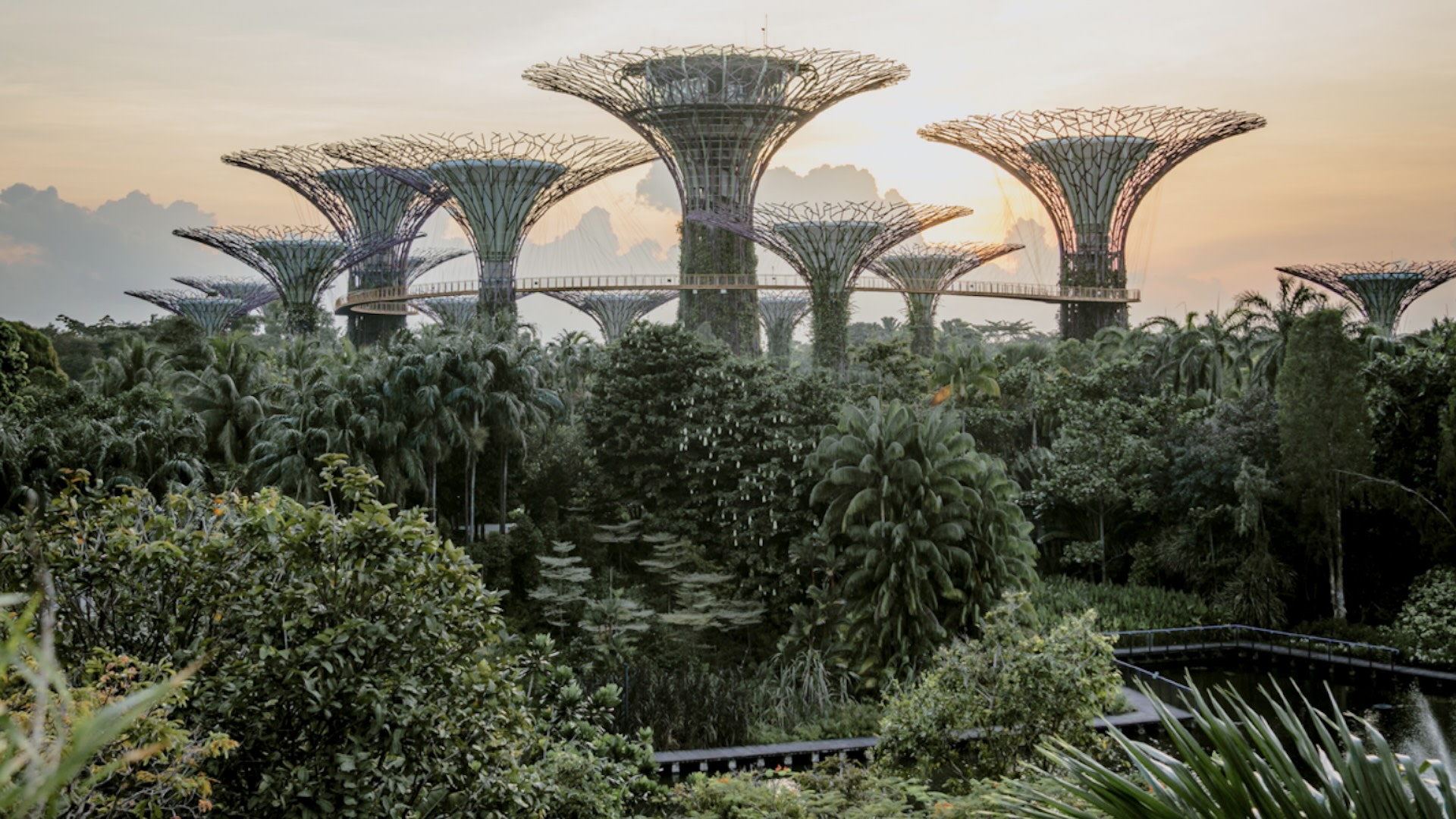Singapore announced a long-term plan aimed at drastically reducing air pollution by 2050. Its Long-Term Low-Emissions Development Strategy is a key part of the country's ongoing efforts to cut harmful environmental pollutants. According to The Independent Singapore, "achieving these ambitious targets will depend on advancements in low-carbon technologies."
Building on past achievements, such as its 2020 target to reduce air pollution by 16%, Singapore remains committed to using innovative technologies to meet its environmental goals.
One of the technologies it plans to explore is hydrogen power, per the Independent. Besides heat, water is the only by-product of using hydrogen in a fuel cell, making it a clean source of energy when the fuel is used to create electricity (though the source of the hydrogen must also be considered). Another technology under exploration is carbon capture, a process that traps harmful carbon dioxide to keep it out of the atmosphere and to keep the air cleaner.
The government also launched the GreenGov.SG initiative, which aims for public agencies to significantly reduce their pollution output by 2030 and for "net zero emissions around 2045." Additionally, the Jurong Lake District will be developed as a model for green living as part of a broader Singapore Green Plan 2030 and will "target net zero emissions for new developments by 2045," per the Independent.
Singapore has already consulted over 1,700 people and stakeholders to help shape the next steps, according to the news outlet. These efforts are crucial not only for encouraging collective effort to improve air quality but also for setting an example for other countries.
The National Climate Change Secretariat and the Ministry of Sustainability and the Environment have emphasized that businesses and individuals alike will need to collaborate to make this vision a reality, per the Independent.
This commitment paves the way for widespread dedication to cleaner air, a more stable climate, and sustainable urban development. Elsewhere, other examples of collective effort initiatives that drive change include Mazda's launch of electric vehicles, Walmart's EV charging station installations, and a zero-waste center in Japan.
A survey revealed that more than half of Singaporeans want to learn more about the government's environmental efforts and how they can contribute. Over 60% of respondents supported the 12 areas discussed in the survey, which included a variety of strategies, with some already in place and others being considered.
The survey also found that more than half of the participants are already practicing climate-friendly actions, such as raising air conditioner temperatures and reducing single-use plastics. At least 80% said they were likely to continue these actions in the future.
Join our free newsletter for good news and useful tips, and don't miss this cool list of easy ways to help yourself while helping the planet.









